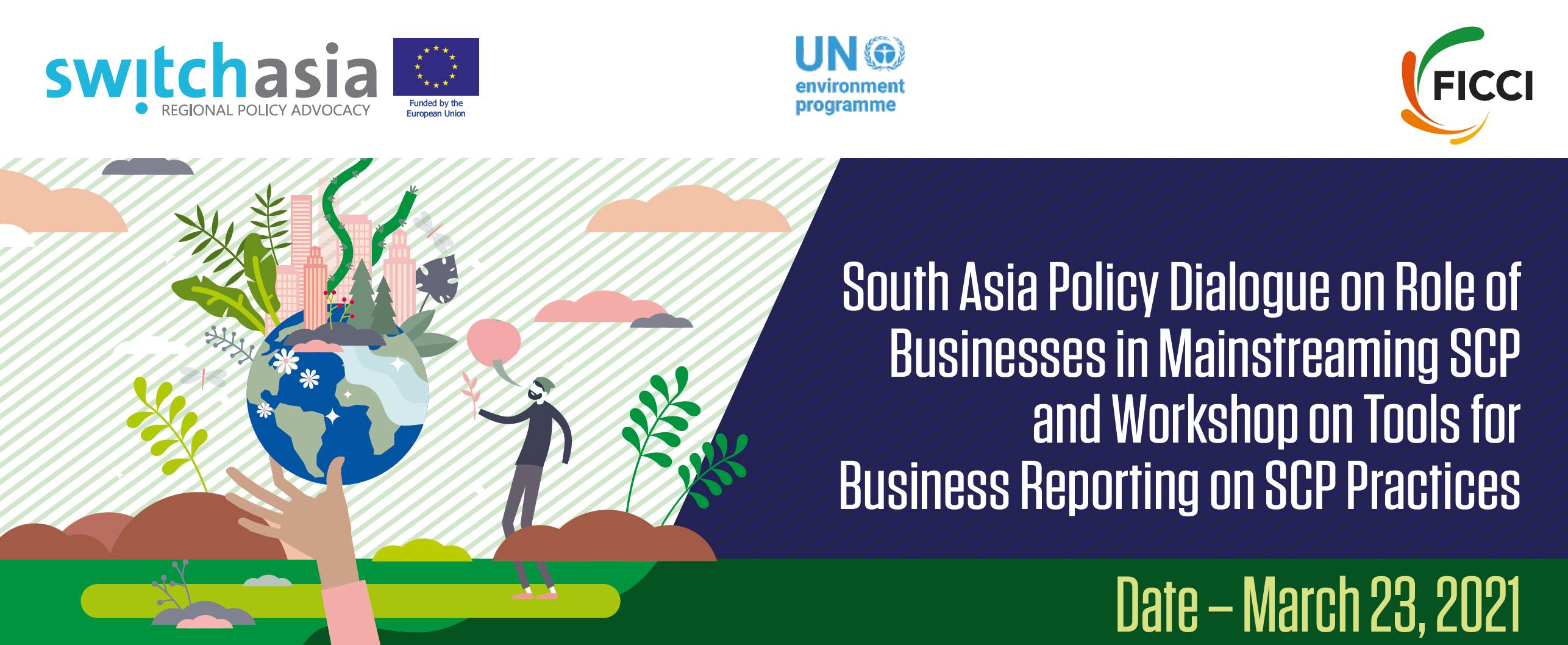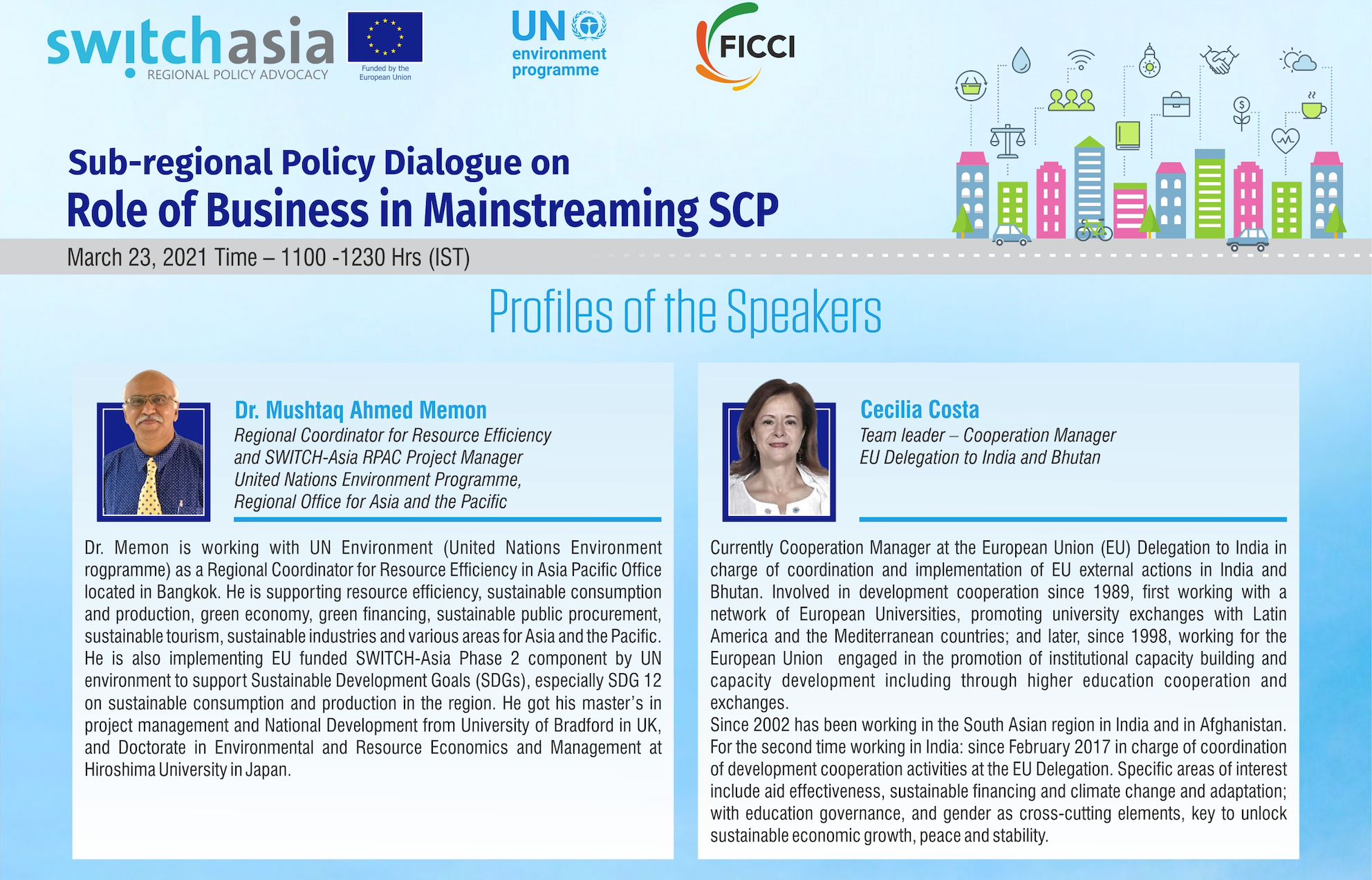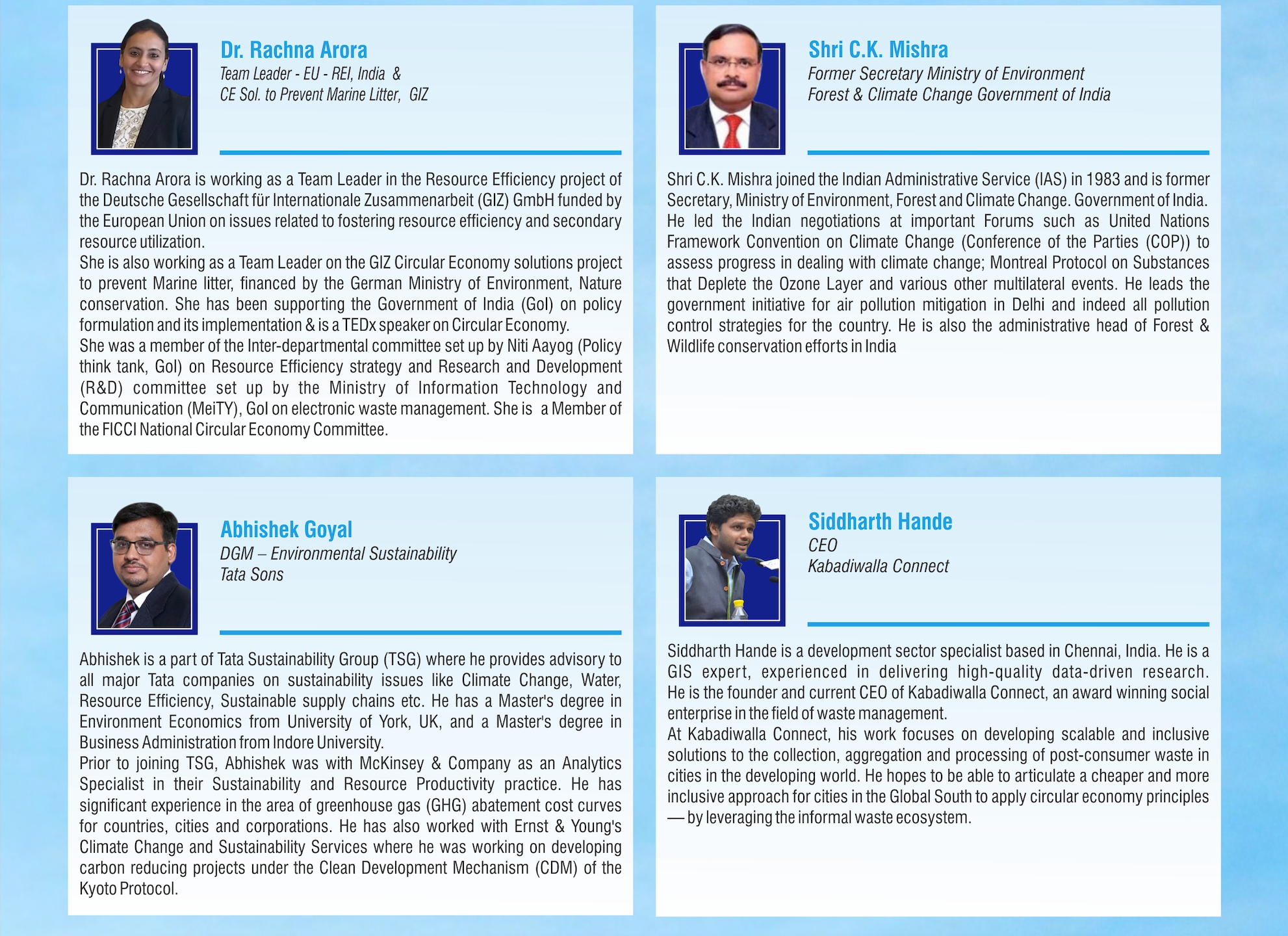
Date: March 23, 2021
Policy Dialogue: 11:00 -12:30 (Indian Standard Time)
Workshop: 14:30 - 17:00 (Indian Standard Time)
Register here I Live Stream
Businesses are increasingly aligning their activities and broader business objectives with the United Nation’s Sustainable Development Goals (SDGs). A 2017 report shows that 43 percent of the world’s largest 250 companies are now linking their sustainability reporting to the SDGs. Sustainable business practices are at the center of SDG 12. Key targets focus on sustainably managing natural resources, reducing waste generation, and raising awareness of sustainable lifestyles. Companies are also explicitly encouraged to adopt sustainable practices and report on their sustainability activities.
The South Asia region, home to a quarter of the world’s middle-class consumers, has experienced a long period of robust economic growth, averaging 6 per cent over the past 20 years. While the sub-region is expected to reach its population peak by 2030, continued population growth, paired with increases in production and household consumption from increasing economic prosperity will also place increased pressure on the environment, making the need to shift towards resource efficiency and SCP an imperative for South Asia’s Post-2015 Sustainable Development Agenda (SADA). According to the “Asia and the Pacific SDG Progress Report 2019”, SDG 12 is regressing in the region, indicating a need for business and government in South Asia to raise their ambition levels on SCP.
With this background, SWITCH-Asia RPAC in partnership with Federation of Indian Chambers of Commerce and Industry (FICCI) recently completed an assessment report on SCP – Stocktaking of Perspectives in South Asian Business. The report highlights a substantial level of understanding of SCP practices among South Asian Businesses and a fairly high level of large enterprises reporting on same. The report also identifies key barriers and enablers driving SCP adoption/reporting by businesses in South Asia.
In this context, the objective of this policy dialogue and workshop is to disseminate the findings of the survey report, to mainstream knowledge and understanding of SCP practices, and facilitate further action aimed at the adoption of SCP practices by businesses in South Asia.
Speakers






